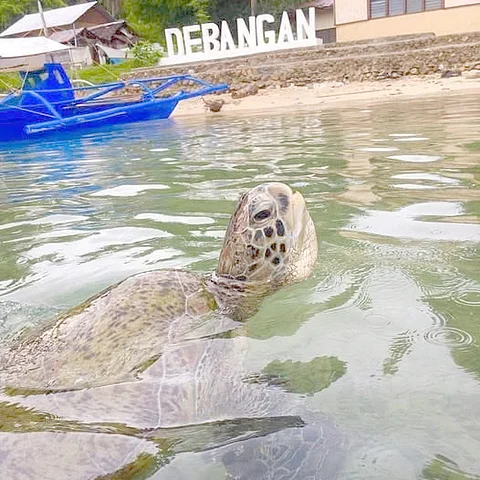
- NEWS
- the EDIT
- COMMENTARY
- BUSINESS
- LIFE
- SHOW
- ACTION
- GLOBAL GOALS
- SNAPS
- DYARYO TIRADA
- MORE

Barangay Debangan in Taytay, Palawan is a well-known tourist destination for green sea turtles, according to Kimberly Mamburam, a staff of the Sulubaai Environmental Foundation, which is helping the village turn itself into a marine protected area (MPA).
Mamburam reveals that a public hearing was conducted in the village last 7 June to consult the community regarding zoning of the proposed 119.9-hectare marine protected area encompassing its coastal waters in Taytay Bay.
The barangay council has been actively advocating for the establishment of an MPA to protect the turtles and promote sustainable tourism.
“With the collaboration of the Municipal Tourism Office, Sulubaai, and the barangay council, the initial steps for MPA implementation have been set in motion, including a fish population survey in the proposed area,” Mamburam says.
“Through multiple dive assessments, Sulubaai has also identified Debangan as a potential sanctuary for blacktip reef sharks — an additional attraction for divers that further justifies its protection,” she adds.
Sulubaai has been supporting Barangay Debangan from the early stages of public consultation through to the planning and legal formalization of the MPA.
Mamburam says the foundation will also continue to assist in the MPA implementation phase, particularly in the development of a sustainable tourism program for the community.
Relative to the initiative, a Pawikan watching was scheduled during the fiesta of the island on 23 and 24 June, a Facebook post by local councilor Lloyd Casas Ko on 16 June read.
The post included rules for turtle watching.
To ensure an orderly and safe turtle watching for the public, it was limited to 8 a.m. to noon. Beyond 12 p.m., interacting with the turtles is prohibited to prevent disturbing the animals.
People who want to watch the turtles are required to book a schedule with coordinators Ko and Sharon Valdez at the barangay office.
The booking is intended to limit the number of watchers and avoid overcrowding that may stress the turtles.
Walk-in watching is prohibited.
Watchers are also prohibited from touching, hurting, terrorizing and feeding the turtles. Violations are punishable in accordance with laws.
